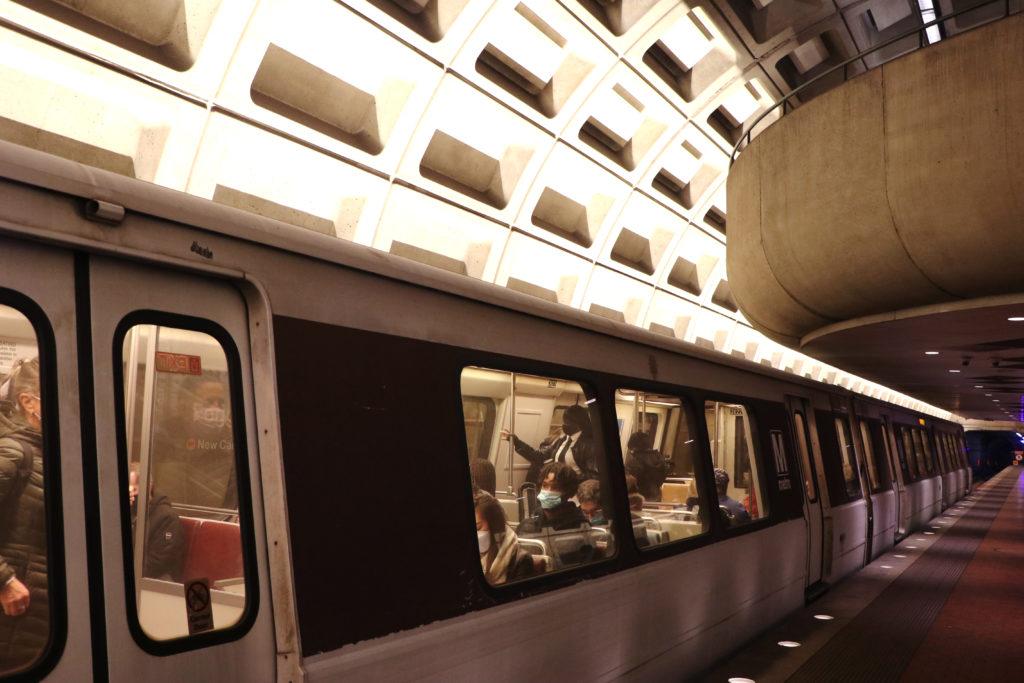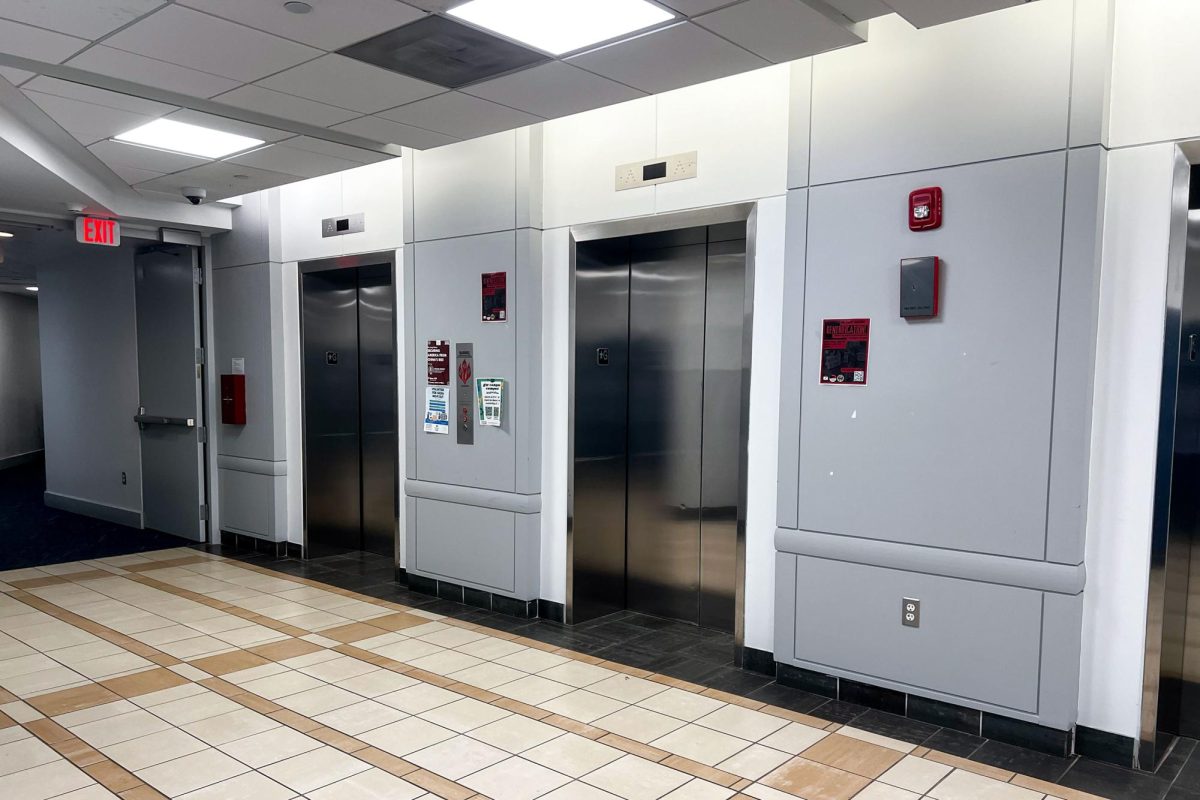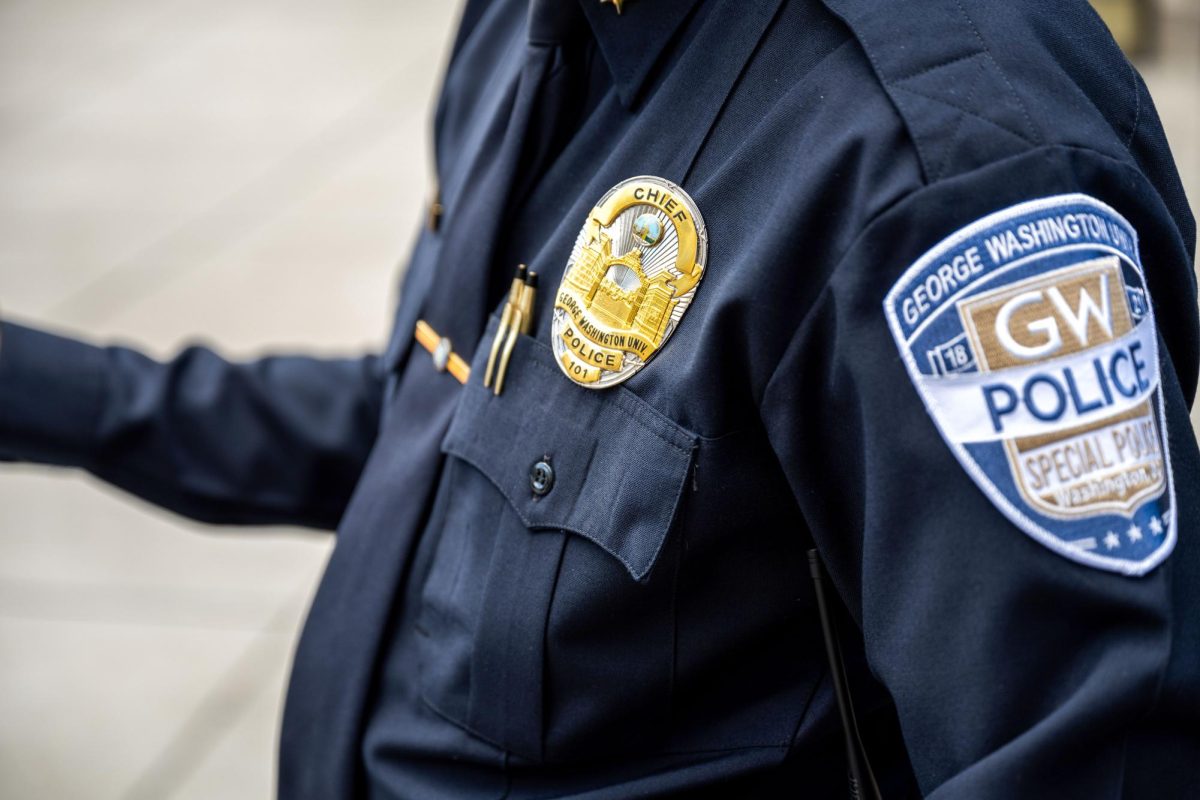Students are welcoming the arrival of the U-Pass program, echoing years of advocacy that led officials to enroll in the program.
The University announced its enrollment in U-Pass earlier this month with plans to charge all full-time undergraduate students a rate of $100 per semester and allow graduate students to choose whether or not to enroll in the program after offering the program for free for the first three weeks of December. In interviews, more than 10 students said they mostly approve of the savings offered through U-Pass for commuters traveling to work or internships, but some said they wished undergraduates could opt out of the program.
James Harnett, an alumnus and former Advisory Neighborhood Commissioner in Foggy Bottom who pushed officials to enroll in U-Pass in 2019, testified in front of the Washington Metropolitan Area Transit Authority two years ago urging them to allow students to opt out of the program. With the program set to debut next month with a graduate student option, Harnett said the program will grant lower-income students greater access to employment opportunities across the city.
“I would love to see more students riding Metro,” Harnett said. “I would love to see students that have financial difficulty, like I did when I was a student, being able to afford the trips on Metro every day.”
Harnett’s advocacy came as part of a years-long struggle of students prodding officials from the University and WMATA to participate in the program.
The student push for U-Pass at GW dates back to 2003, when some student leaders pushed for a Metro pass similar to the one K-12 students use in the District.
Students renewed a push for the University to enroll in the program through a referendum in spring 2016, but officials said WMATA’s terms were not “feasible or fair” for GW. WMATA launched the program that fall with American University and now includes 26 schools.
SA presidential candidates have regularly included launching U-Pass in their platforms, including Christian Zidouemba in 2021 and George Glass and Georgie Britcher in 2020.
Harnett said students who normally rely on ride-sharing services might now choose to utilize public transportation instead because of the unlimited rides that U-Pass offers, which saves money and is better for the environment.
The $100 U-Pass fee per semester qualifies for financial aid coverage at GW because it will be included in the University’s cost of attendance.
“The University, to their credit, did a really great job of prioritizing students’ needs in their negotiations directly with Metro, and that has resulted in the program we’re seeing today where all of those boxes have been checked,” Harnett said.
Student Association Vice President Kate Carpenter said she met with officials during the past few months to urge them to enroll students in U-Pass. She said the program will support students who need affordable transportation to their internships.
“Since we have such a strong internship culture, we encourage our students to go to internships, we haven’t really provided them a means of transportation to do so,” she said in an interview last month. “So the first and foremost thing that comes to mind is internships, getting students to where they need to go to be able to make the money that they need.”
Senior Surya Bromley said she’d prefer an option to bypass U-Pass enrollment because the program will cost her more money than she typically spends on transportation if she doesn’t regularly use the Metro. Bromley said the pass would help commuting students or students with District-based internships, but many students may not need to use the Metro very often, especially those living on campus.
“I’d prefer to opt in or opt out, because honestly, students don’t need the Metro, and that should be their choice to make,” she said. “If you’re living on Foggy Bottom, which freshmen through juniors are, or the Vern, you don’t need the Metro.”
Student leaders pushed WMATA to permit students to opt into U-Pass in 2019, but a WMATA spokesperson said at the time that the option was “not under consideration.”
Aidan Schwab, a sophomore studying international business, said U-Pass will help him save money on the Metro, which he rides several times a week. Schwab said the price is fair for people who regularly ride public transportation, and he is excited to continue using the Metro several times a week to explore D.C.
“I figured, ‘Damn, school’s expensive enough, so $100 isn’t too much for it,’ so it doesn’t really bother me,” he said.
Mahi Bhatt, a sophomore majoring in neuroscience, said she’s “very glad” the University is enrolling in the program, and the $100 rate is reasonable for her use of the Metro.
“I know that a lot of students have been pushing for it for a while because it’s just something that makes sense to have as a student going to a city school,” she said.
Amy Fehr, a sophomore from Virginia studying biomedical engineering, said U-Pass will make trips to visit her family across the Potomac more affordable.
“I don’t have to spend an inordinate amount of money if I want to go visit my family, which is pretty nice,” she said.
Fehr said although all undergraduate students must pay for the program, U-Pass doesn’t make sense for people who don’t ride the Metro often, left without the flexibility to opt out.
“If you don’t use the Metro, what are you paying for?” she said.







